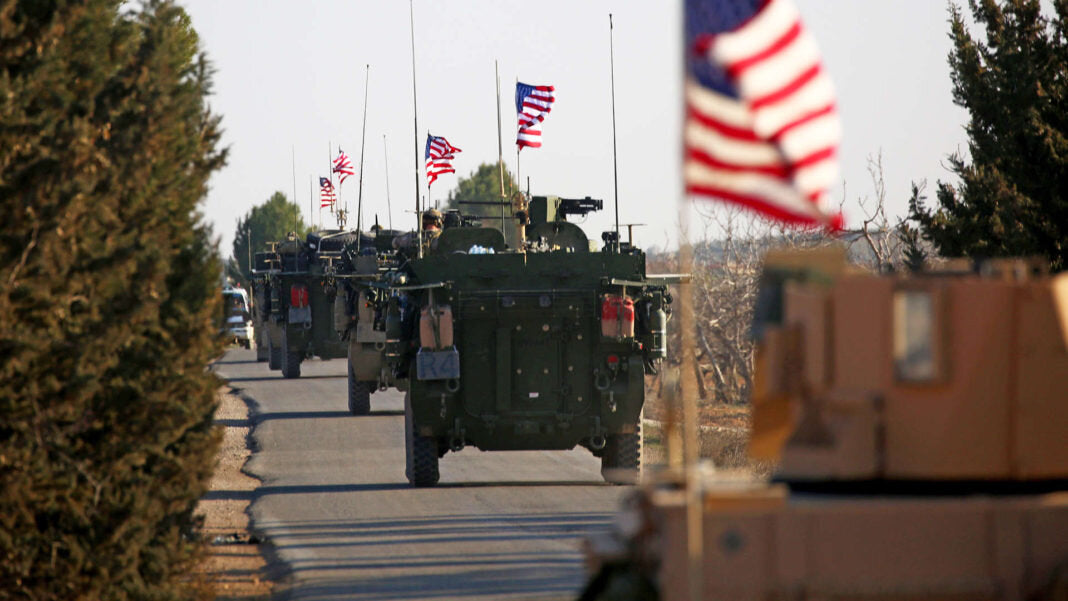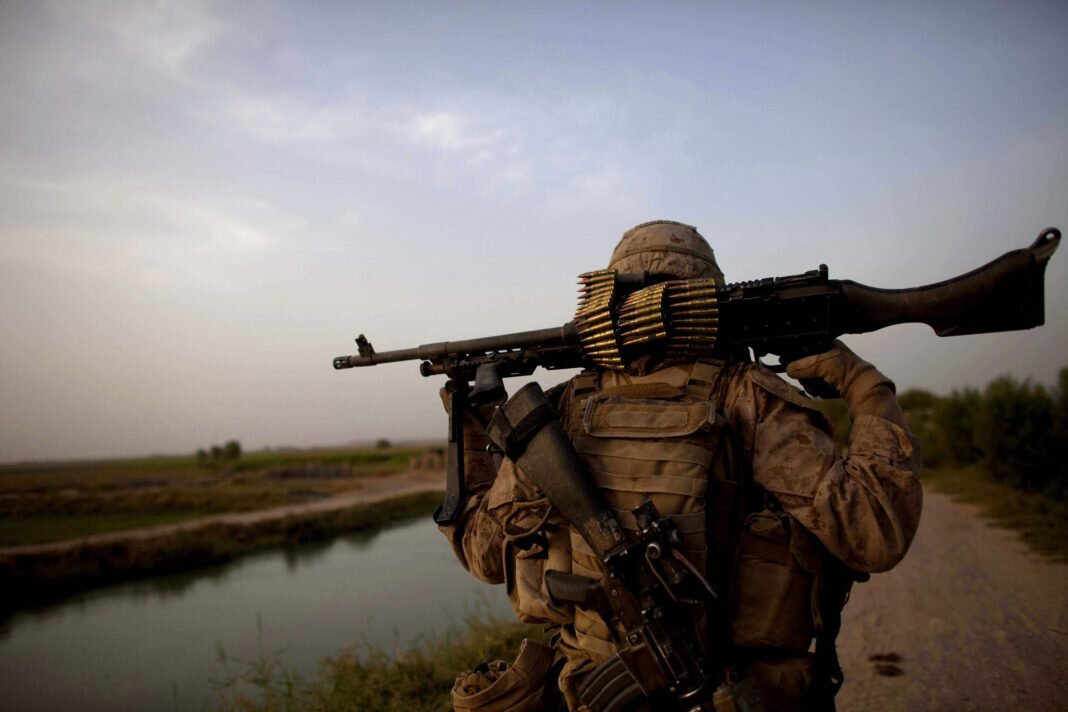
Getting Drunk On The Past



Last month, my social media newsfeeds erupted in applause over our incursion into Syria. US Army Rangers charged forward in Strykers proudly displaying enormous American flags, and the entire scene conjured valiant nostalgia. Other veterans and myself shared our excitement on Facebook and cheered on the boys leading America’s entrance into a civil war that has long awaited US ground support. After my initial excitement subsided, I soberly mumbled to myself, “what are we even doing there?”I was still in high school when the towers fell. During my senior year, I watched the US invade Iraq with uninterrupted attention. I’d eventually make it to college—in my 30’s—but as a teenager, my future had no purpose other than serving. It was simple; we were attacked on 9/11 and America cried out for her sons and daughters to go forth and execute vengeance against the evildoers. I didn’t know anything about terrorism, non-state actors, civil wars or insurgencies. Even after learning about these subjects in the Special Forces Qualification Course, I still didn’t care. America decided who her enemies were in the Middle East and that was where I needed to go fight.As a junior Special Forces operator, I was painfully ignorant to broader political strategies, the social complexity of why villagers decide to put bombs in the road, or why an entire generation of Americans would willingly enlist, and re-enlist to fight a war in Iraq that afforded no winnable solutions. Don’t get me wrong, I loved every single minute of combat. Not in the insecure sarcastic “I like to kill” bro-vet manner. No, that is too cheap. I mean in the way of sitting on the side of black hawk helicopter with my feet dangling, 30 seconds out from a target, feeling a euphoric high greater than that of any alcohol fueled post deployment bender. Or the unexplainable subtle comedy that transpires in tragedy, and how you become so close to other men, probably the only time in your life that you will ever be so emotionally close to anyone, that you can read each other's cues without even speaking. I loved Iraq, but I hate how it leaves a longing, an unending search in your soul that tries to make sense of everything you lost.When you are the boots on the ground, it is easy to ignore the broader impact—or lack thereof—that you are having on the overall war effort. In the film American Sniper, there is a scene in which Chris Kyle is challenged after a mission briefing by a teammate that has lost faith in the US mission in Iraq. Rejecting his teammate’s dissent, Kyle challenges him back with predictable soldier masculinity. “Hey man, you need to sit this one out?” With a 1,000 yard stare his teammate replies, “I just don’t know what we’re even doing anymore.” Kyle responds in a manner that embodies the confusing sacrifice of so many American soldiers. “We’re stopping them here… so they don’t come home, and attack San Diego.” In the movie, Kyle’s teammate departs the room after rhetorically asking, “Is that how it really works?”Whether standing on a tarmac waiting to load black hawk helicopters, or sucking down one last cigarette before stepping off into the mountains, every soldier, at one point or another, challenges the very identity that gives him purpose by asking, “what am I even doing here.” In Afghanistan I found myself asking a form of that question a million times over. Sometimes it was out of desperation and anger after losing a firefight, other times it was in silent awe at the sublime capacity of American air power dropping ordnance. On one particular mission, we watched the gun camera feed from a C-130 as it fired 40MM grenades. We knew that the Taliban in the village were not the hard line fighters that shot women in the head, these were mostly teenagers that joined because they lacked economic mobility. Did they really believe in killing Americans, or were they just the result of the complex dynamics of societies at war? They scrambled to outrun aerial fire that is unavoidable. It’s hard to feel sympathy for your enemy during battle or even years afterwards, but now that enough time has passed, I think of the teenagers we killed and wonder what we were doing.When I was a brand new team guy, I couldn’t stand any news commentators that disparaged US efforts in Iraq and Afghanistan. Because my friends and I were sacrificing in these campaigns, any dissent was labeled as invalid. What did policymakers and academics know? They weren’t the ones dying overseas. My emotional ties to the tactical aspects of the wars blinded my political understanding of what the US was accomplishing, or more specifically, failing to accomplish.Of course, I never deployed with the expectation that we were going to establish immediate democracy. Instead I sold myself a narrative where we were helping people that needed external support, and if given the chance, they would willingly govern themselves through self-determination. The truth on the ground was much different. A common way in which trust deteriorated was through social entrepreneurs of varying capacities that discovered how to exploit foreign aid and US soldiers. We met the self-motivated individuals that took advantage of their fellow countrymen in order to become power brokers that worked with the US. As a result, villagers didn’t really trust anyone. They didn’t want me in their country, and they, for the most part, didn’t care for the types of individuals the US was propping up as regional authority figures. We’re those teenagers that we killed with the C-130 really that radical for distrusting us over the Taliban?I get it though, political consolidation is inherently illiberal. There is no clean way to form a country out of a civil war. A winning political faction must be chosen, with or without the consent of the losers. That group must then be given the resources to legitimize a central government, from which they must go forward in honoring a social contract with citizens. I also understand that great powers such as the US and Russia need to maintain regional influence as a part of other political agendas. But I have a really hard time buying into any military action that is executed without clear objectives or political outcomes. As our focus shifts to intervention in Syria, I have a hard time listening to opinions that fall back on the moral crutch of, “it’s the right thing to do.”During the invasion of Iraq, the echoes of Vietnam fell on deaf ears. Instead, hawkish narratives to fight terrorism were repackaged under borrowed nostalgia from World War 2. After 9/11, violating another country’s sovereignty in order to overthrow a despot was hardly a debatable question. Opposition to any US military efforts easily translated into abhorrence against ‘Mericuh and freedom.Seventeen years later, we’ve arguably lost the Iraq War and Afghanistan doesn’t look hopeful either.To be fair, part of my hesitation to endorse US ground forces participation in Syria also stems from jealousy. The US military has embarked on a new expedition and I can’t be a part of it. Like a former high school football player, long past his heydays, I can only watch now from the sidelines as a new generation charges forward with the guidon. May we honor the sacrifices of America’s boots on the ground by not leaving them stranded in a war based on misplaced nostalgia and confused political objectives.I believe the US is the best country in the world. I believe in the intelligence community and the surgical strikes performed by JSOC. I believe in the willingness of soldiers that deploy without question to ambiguous war campaigns. However, I do not believe in war plans that rely on “liberation” or “freedom” as core tenets of justification. I don't believe in slowly committing American troops to civil wars that afford no clear political outcomes or benefits to American grand strategy in the region.A hangover teaches our body the consequences of being drunk. When we are drinking, we are so caught up with the excitement of an experience—even if it’s familiar— that we ignore the symptoms that indicate our impending sickness. Syria is still a new experience for US ground forces, and it isn’t too early to bail on the party so that we have a good night’s rest and wake up feeling productive. But if we’re going to stick around to see how things develop, we might as well go all in and make it a bender.- Will Hunting
Written By Will Hunting
April 5, 2017









